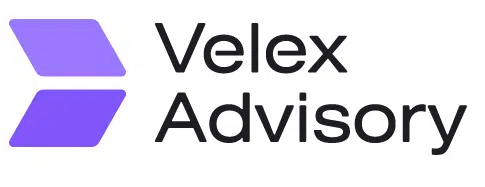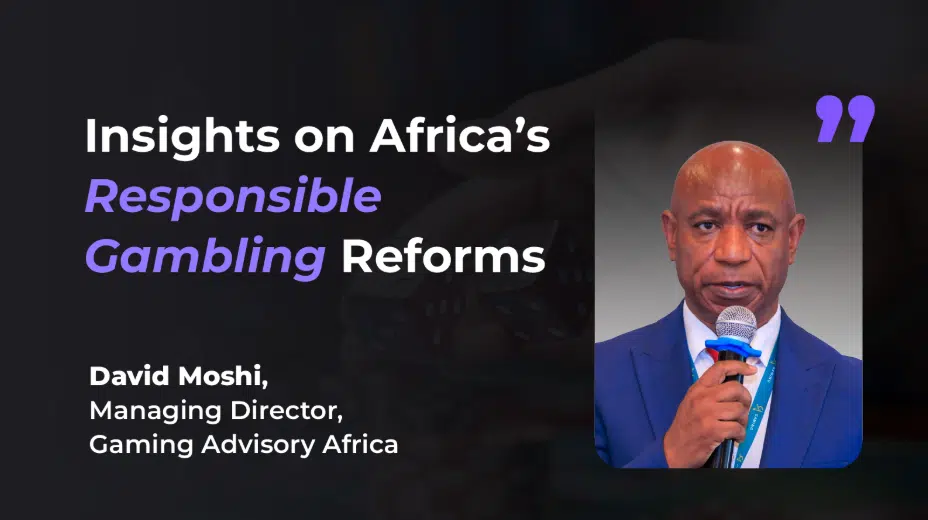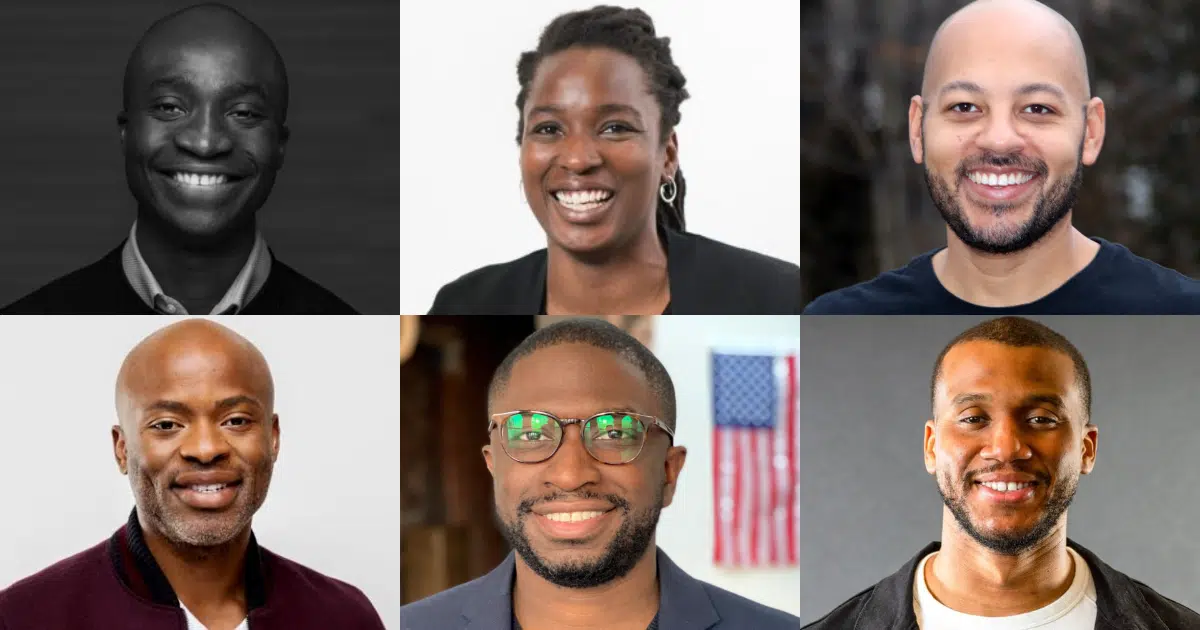Africa’s gaming market is entering a new era, one defined not just by rapid growth, but by growing accountability. With online betting now making up more than 90% of gaming activity in countries like Uganda, regulators are prioritising responsible gambling frameworks that protect players, promote transparency, and strengthen investor confidence.
For operators and investors, understanding these developments is no longer optional. Responsible gaming policies are shaping everything from licensing approvals to long-term sustainability. Across the continent, governments, operators, and advocacy groups are taking proactive steps to curb gambling harm, prevent underage betting, and embed integrity into the gaming value chain.
From our work at Gaming Advisory Africa, this guide highlights how different African countries are advancing responsible gaming and what every investor should know before entering the continent’s dynamic gaming ecosystem.
South Africa: Institutional Leadership and Community Education
South Africa remains a model for responsible gambling in Africa. Through the South African Responsible Gambling Foundation (SARGF), also known as the National Responsible Gambling Programme (NRGP), players have free access to confidential counseling and rehabilitation services.
In 2024, several provincial boards launched extensive awareness drives. The Eastern Cape Gambling Board hosted sessions at Walter Sisulu University, educating youth on the dangers of addiction and self-regulation practices. Simultaneously, Betway, in partnership with the Premier Soccer League, amplified responsible gambling messages during National Responsible Gambling Month.
In 2025, operator-led initiatives deepened. LottoStar launched an in-platform mental health counseling program and introduced tools like cool-off periods and self-exclusion options. Meanwhile, the North West Gambling Board expanded school-based education campaigns after national problem gambling rates rose from 5.8% in 2017 to 31% in 2024.
By September 2025, even provincial regulators like Limpopo Gambling Board were conducting on-site awareness visits to licensed venues, signaling a nationwide commitment to safer gaming ecosystems.
Nigeria: Regulatory Innovation and Public Awareness
Nigeria’s gaming regulators are leading continental efforts in mass awareness and digital protection. The Lagos State Lotteries and Gaming Authority (LSLGA) spearheaded a series of initiatives from 2024–2025 targeting youth protection and addiction prevention.
Highlights include:
- December 2024: A week-long campaign promoting responsible gaming and shielding minors from exposure.
- February 2025: A state-wide public education push, responsible gaming messages were broadcast on public transport and even embedded into Wi-Fi access portals.
- March 2025: The GamblePause Initiative Africa launched the “Say No to Underage Gambling” program, combining school visits, workshops, and online outreach.
- May 2025: A formal partnership between LSLGA and TVC Communications to amplify responsible gaming messaging across mainstream media.
- August 2025: Launch of SafePlay, a first-of-its-kind self-exclusion and recovery portal, offering player blocking tools and professional support resources.
These coordinated efforts make Nigeria one of the most progressive markets in Africa in terms of player welfare, public education, and digital safeguards.
Kenya: Player Protection at the Core of Reform
Kenya’s regulatory framework has undergone significant transformation. In April 2025, the Association of Gaming Operators-Kenya (AGOK) rolled out player-centric tools such as deposit limits, betting caps, timeouts, self-exclusion, and real-time alerts. These were complemented by age-verification upgrades and toll-free helplines for addiction support.
During Responsible Gaming Week (May 12–18, 2025), the Ministry of Health led a nationwide campaign under the theme “Community,” focusing on gambling addiction awareness and rehabilitation access.
Later that month, Kenya’s Gambling Act 2025, through the Gambling Regulatory Authority (formerly BCLB), suspended all gambling advertisements and influencer marketing amid rising addiction concerns, introducing stricter ad-approval requirements moving forward.
Kenya’s reforms reflect a deliberate shift toward player protection, advertising ethics, and public health integration, key factors for investor confidence.
Uganda: A Data-Driven Approach to Responsible Gaming
Uganda is taking a technology-first approach to monitoring and regulation. In February 2024, the National Central Monitoring System (NCMS) was launched to enhance compliance, improve data analytics, and strengthen oversight of betting operators.
By November 2024, the National Lotteries and Gaming Regulatory Board (NLGRB) had teamed up with the Uganda Police Force to clamp down on illegal gaming while promoting responsible gambling and protecting vulnerable communities. These efforts have yielded measurable results: by September 2025, nearly 2,000 players had voluntarily excluded themselves from betting platforms using self-exclusion tools, a sign of growing awareness and responsible player behavior.
Interestingly, Uganda also maintains one of the strictest legal betting age limits in Africa, 25 years, underscoring the country’s commitment to minimizing exposure among young adults.
Zambia: Blocking Harmful Play through Technology
In January 2025, the UK-based charity BetBlocker and Fresh Start Zambia expanded gambling-blocking software access across the country, now available in Bemba, Nyanja, and Tonga. The initiative empowers players to block gambling sites and apps on their devices at no cost, marking a strong technological intervention against addiction.
This approach complements regional efforts to integrate responsible gaming technology into consumer protection policies, signaling a broader trend toward tech-enabled prevention.
Botswana: Research-Led and Compliance-Anchored Regulation
Botswana is prioritising research and institutional training. In January 2025, the Botswana Gambling Authority (BGA) partnered with Integrated Research Hub (Pty) Ltd to conduct a national study on the scope of problem gambling, the first of its kind in the country.
By October 2025, under the Financial Intelligence Act, BGA expanded mandatory anti-money laundering (AML) and responsible gambling training for all licensed operators. This dual focus on compliance and education sets a strong governance precedent for other African regulators.
Rwanda: Strengthening Oversight and Player Protection
After assuming regulatory oversight in June 2024, the Rwanda Development Board (RDB) prioritized the protection of vulnerable groups. New licensing standards now include mandatory compliance monitoring and social safeguards aimed at reducing youth participation, a critical step in an economy where digital access is rapidly growing.
Rwanda’s model combines policy modernization with targeted prevention, laying a foundation for sustainable industry growth.
Malawi: Betting Integrity and Cross-Border Cooperation
In April 2025, the Malawi Gaming and Lotteries Authority (MAGLA) hosted a two-day workshop in Salima dedicated to responsible gambling education.
By June 2025, pawaTech joined the International Betting Integrity Association (IBIA), linking its transaction data to a global monitoring network designed to detect match-fixing and fraud. IBIA’s 2024 report flagged 63 suspicious betting alerts, leading to sanctions against 17 clubs, players, and officials.
For Malawi, partnerships like this mark an important milestone, integrating local regulation with global integrity standards.
Responsible Gambling Matters
Responsible gambling is no longer a secondary conversation in Africa’s gaming sector; it’s a cornerstone of policy, regulation, and sustainable investment. The continent’s leading markets are proving that profitability and protection can coexist through technology, education, and transparency.
For investors, responsible gambling isn’t just a moral or regulatory issue, it’s a risk management imperative. Jurisdictions that actively enforce responsible gaming measures tend to:
- Offer greater regulatory stability and investor confidence,
- Reduce brand and reputational risk, and
- Attract international partnerships and sponsorships tied to compliance.
At Gaming Advisory Africa, a subsidiary of Velex Advisory, we help investors and operators interpret these regulatory shifts, assess market readiness, and integrate responsible gaming strategies into their business models.
Our work ensures that compliance becomes not just a checkbox but a competitive advantage across Africa’s evolving gaming landscape.











